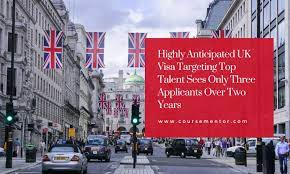Chris Eyler, who serves as the Executive Director of the Northwest Region in the Congressional and Public Affairs Division at the U.S. Chamber of Commerce, has expressed concerns regarding the possibility of a recession in the United States during the first or second quarter of 2024. He highlighted the Federal Reserve's intention to consider raising interest rates due to the current inflation rate, which has had a notable impact on increasing borrowing costs for both housing and business ventures. Despite these challenges, Eyler emphasized that the housing market remains stable, consumer spending continues to grow, and overall consumption is on the rise. During the pandemic, U.S. consumers amassed significant savings, which were rapidly spent as the economy reopened. Consequently, the country's savings have decreased compared to the pre-pandemic period, with many consumers carrying substantial credit card balances. While the U.S. Chamber of Commerce acknowledges the economy's resilience, there is apprehension about the future.
 Eyler cited the political climate as a source of concern, citing instances such as narrowly avoiding a government shutdown in September and setting records for votes on the House Speaker in January. Congress only narrowly met the June deadline to reach an agreement on the debt ceiling, a situation that instills anxiety within the business community. He also cautioned against the economic catastrophe that would result from a default on national debt. The current state of political turmoil and polarization, according to Eyler, has been escalating for decades, as political representatives have become more focused on winning primaries than general elections, leading to more extreme positions. Furthermore, states have become increasingly politically homogenous, dominated by either Republican or Democrat majorities, which has left voters disheartened and distrustful of the political system. Eyler cited a study by the U.S. Chamber of Commerce, revealing a 27% increase in businesses listed on the S&P 500 expressing concerns in their 10-K filings about public policy's impact on their operations from 2011 to 2021. This concern reached its peak during the Obama Administration at 39%. Members of the Chamber of Commerce have cited their apprehension about the constant shifts in government control and the growing partisanship within the legislative process.
Eyler cited the political climate as a source of concern, citing instances such as narrowly avoiding a government shutdown in September and setting records for votes on the House Speaker in January. Congress only narrowly met the June deadline to reach an agreement on the debt ceiling, a situation that instills anxiety within the business community. He also cautioned against the economic catastrophe that would result from a default on national debt. The current state of political turmoil and polarization, according to Eyler, has been escalating for decades, as political representatives have become more focused on winning primaries than general elections, leading to more extreme positions. Furthermore, states have become increasingly politically homogenous, dominated by either Republican or Democrat majorities, which has left voters disheartened and distrustful of the political system. Eyler cited a study by the U.S. Chamber of Commerce, revealing a 27% increase in businesses listed on the S&P 500 expressing concerns in their 10-K filings about public policy's impact on their operations from 2011 to 2021. This concern reached its peak during the Obama Administration at 39%. Members of the Chamber of Commerce have cited their apprehension about the constant shifts in government control and the growing partisanship within the legislative process.
















0 comments:
Post a Comment